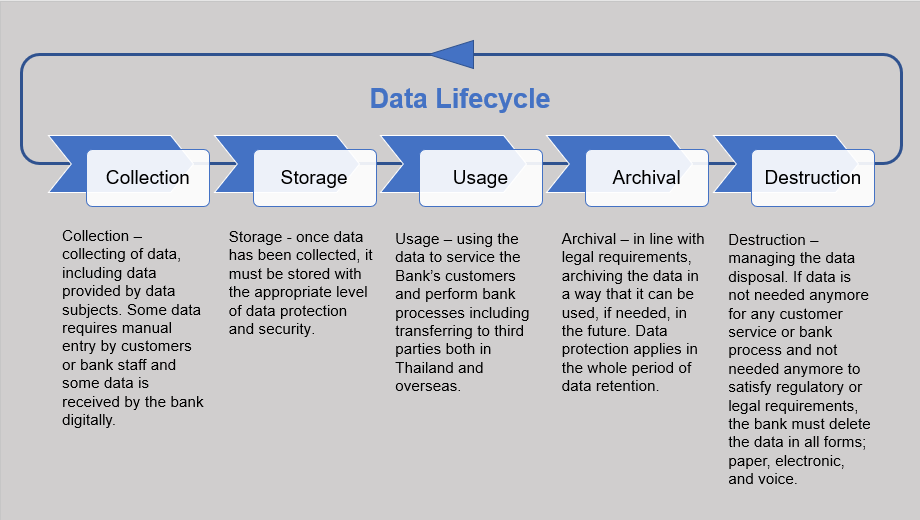Data Destruction Solutions: A Key Element in Your Cyber Security Strategy
Data Destruction Solutions: A Key Element in Your Cyber Security Strategy
Blog Article
The Significance of Effective Information Devastation Practices in Safeguarding Sensitive Info and Ensuring Computer Security
In an era where information breaches are increasingly common, the importance of reliable information devastation methods can not be overstated. Implementing durable information destruction methods not only mitigates these risks yet likewise lines up with lawful compliance demands, making sure that companies promote their online reputation and foster client depend on.
Comprehending Information Damage
Comprehending information damage is critical in today's electronic landscape, where delicate details can conveniently be endangered. Efficient data destruction involves not just guaranteeing yet erasing files that data is irretrievable with comprehensive approaches. This process is crucial for organizations that take care of personal customer info, intellectual property, or interior files, as any breach can cause serious financial and reputational consequences.
Information devastation incorporates numerous techniques, including shredding physical media, degaussing magnetic storage space tools, and employing software-based remedies that overwrite information multiple times. Each technique offers a certain purpose and needs to line up with the sensitivity of the details being dealt with. Physical devastation is typically chosen for difficult drives including highly private information, while software program methods may be adequate for much less sensitive information.
Additionally, sticking to market criteria and laws, such as the General Information Security Policy (GDPR) or the Wellness Insurance Coverage Portability and Liability Act (HIPAA), is necessary for compliance and to alleviate legal risks. Organizations must establish a durable data destruction plan, train workers on finest techniques, and regularly examine their procedures to guarantee that all sensitive info is disposed of safely and successfully.
Dangers of Inadequate Practices
Insufficient data devastation methods reveal companies to significant threats that can have significant repercussions. When delicate information is not effectively disposed of, it continues to be prone to unauthorized accessibility, which can bring about information violations and identity theft. Such occurrences not only jeopardize the safety and security of individuals yet additionally stain the company's track record, leading to a loss of client trust and prospective financial repercussions.
Moreover, regulative conformity is progressively strict in many sectors. Failing to comply with information damage laws can result in significant penalties and legal actions versus organizations. These charges can divert and strain financial sources attention from core organization operations.
In enhancement, the misuse of recurring data can cause intellectual residential or commercial property burglary or company espionage, threatening affordable advantages (data destruction). The effect of poor information destruction extends past prompt monetary losses; it can additionally lead to long-lasting damage to brand honesty and market placement

Organizations need to acknowledge that information safety is not entirely concerning preventing violations; it likewise encompasses the accountable management of data throughout its lifecycle. Ignoring reliable data devastation methods can have disastrous effects, highlighting the necessity for robust steps to reduce these threats.
Best Practices for Information Damage
Implementing reliable information devastation practices is important for securing delicate info and preserving compliance with regulative requirements. Organizations needs to adopt a multi-faceted approach to make certain that data is irretrievable, consequently protecting against unapproved accessibility and prospective breaches.
First, information need to be classified based upon sensitivity, permitting organizations to use suitable destruction approaches customized to the degree of threat. For digital data, making use of software-based data-wiping devices that follow industry standards can effectively overwrite existing information. Physical destruction methods, such as shredding or degaussing, are crucial for devices that keep delicate details, making sure complete eradication.
Establishing a clear data retention plan is vital, describing the length of click time different kinds of details should be kept before damage. Routine audits of data storage systems are also required to recognize unnecessary or obsolete data requiring removal.
Moreover, training employees on the significance of data destruction and the certain procedures to comply with fosters a society of safety within the organization. Maintaining paperwork of data damage processes supplies accountability and supports compliance with interior plans and exterior regulations. By sticking to these ideal practices, companies can significantly alleviate the risks connected with information direct exposure.
Legal and Compliance Considerations

Failure to comply with these policies can result in serious charges, consisting of significant fines and reputational damages. Organizations has to apply a durable data devastation plan that straightens with these lawful structures and gives clear standards on the correct techniques of information disposal, whether physical shredding or electronic wiping.
Moreover, keeping documents of data damage tasks is necessary for demonstrating conformity during audits or examinations. By prioritizing lawful and conformity considerations, companies can enhance their data security posture and foster trust fund with clients and stakeholders, ultimately contributing to a more safe and secure information administration atmosphere.
Benefits of Effective Information Destruction
Reliable information destruction techniques prolong past simple conformity; they offer substantial advantages to companies that prioritize them. By making sure that sensitive details is irretrievably ruined, companies alleviate the risk of data violations and the prospective economic repercussions connected with them. This aggressive strategy not just safeguards against unauthorized gain access to but also enhances the general dependability of the company in the eyes of stakeholders and clients.
Executing durable information destruction techniques, such as physical devastation of storage space devices or innovative information cleaning strategies, adds to the strengthening of an organization's cybersecurity posture. data destruction. It lowers the likelihood of intellectual residential property theft and shields More hints exclusive details, thereby keeping an one-upmanship in the market

Verdict
In final thought, reliable information damage practices are important for securing sensitive information and enhancing total computer security. Eventually, a commitment to durable information damage methods promotes a society of duty, therefore strengthening an organization's cybersecurity pose and keeping customer trust.

Report this page